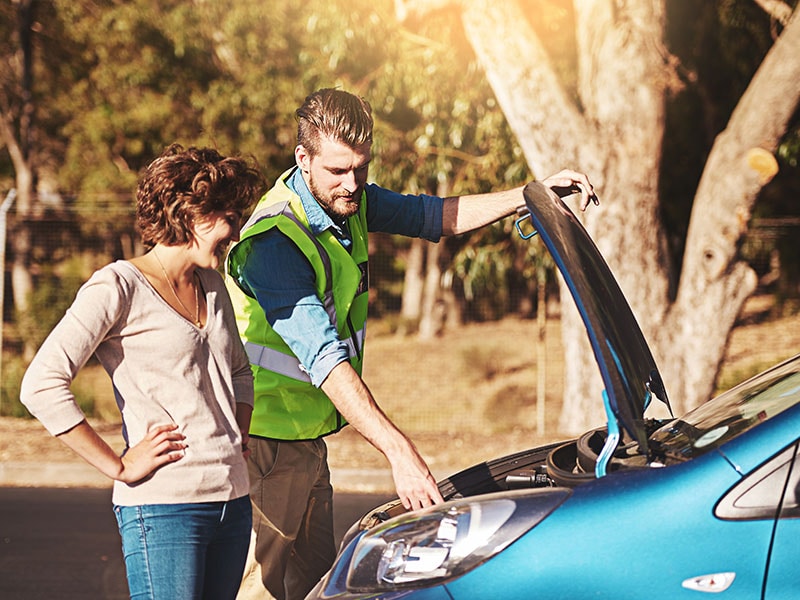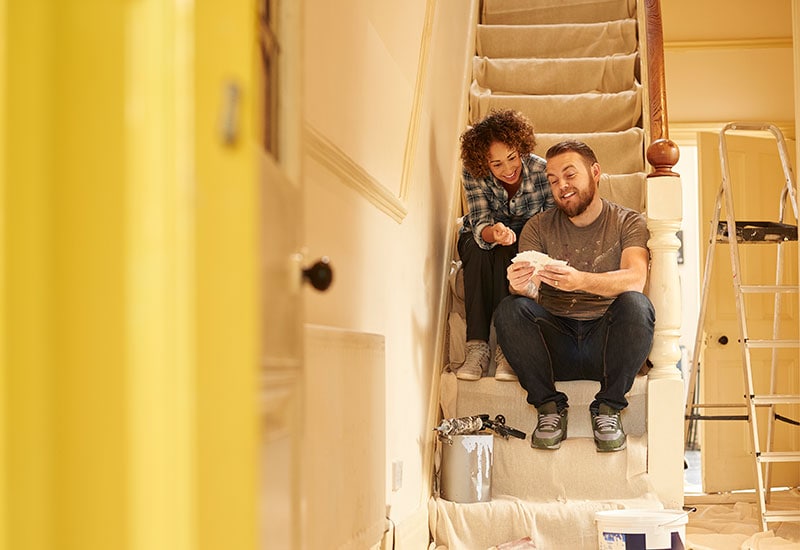How to build an emergency fund
Emergency fund: money-saving tips to get ahead with your finances
Having an emergency fund provides a financial safety net if something unexpected happens to you or your family. But when should you start saving, do you need to pay off your debt first, and how much should you put away for an emergency fund?
Research has found that one in five Australians don’t put away a portion of their income for a rainy day. If you’re part of that statistic, or you are looking to increase your savings, the following are our top emergency fund tips to help you start saving money to cover urgent or unexpected expenses.
Determine what an ‘emergency’ is for you so you can work on a budget
Before you can decide how much emergency fund dollars you need, you should write down a list of the things that you class as an emergency. Keep in mind there are always going to be unexpected expenses in life, particularly if you have a car, home loan, and children, so it’s better to be prepared for anything. Things you might include are job loss, car or home repairs, emergency travel to see family or for work, veterinary bills if you have a pet, medical expenses if you need private hospital cover, and school expenses for children (such as excursions and camp). Once you have determined the expenses, you can move onto the next step to work out how much you need. To prepare for these emergency situations, you may also want plan for the insurance cover you need and prevent any potential out of budget incidental costs.
KEEP IN MIND THERE ARE ALWAYS GOING TO BE UNEXPECTED EXPENSES IN LIFE PARTICULARLY IF YOU HAVE A CAR, HOME LOAN, AND CHILDREN, SO IT’S BETTER TO BE PREPARED FOR ANYTHING.

Work out your emergency savings goal to cover unexpected costs
How much do I need in my emergency fund is a commonly asked question by those who are starting to save. The easiest way to answer is that there are no set rules that apply to everyone. It really depends on your living situation. If you have children or pets, you’ll want to save more to account for the added expenses. If it’s just you, you don’t need a huge safety net, but it certainly pays to have as much as possible. Essentially, if you have a months’ worth of expenses saved in your bank, you are on the right track - this could be as little as $1,000 or as much as $5,000 – or more. This should cover a month’s worth of rent or mortgage payments, food and utility bills, transport and entertainment expenses, as well as education and clothing.
Use a budget planner to consider both short term and long-term options. If you want to be really prepared, calculate how much you spend over 3-6 months and aim to save that much.
Set up a separate savings account so you don’t spend it
Dinner out with friends isn’t classed as an emergency, but if the money is in your regular bank accounts, you’ll certainly be tempted to spend it regardless whether or not you can afford it. If you’re wondering where to store your emergency fund money, it’s a good idea to set up a high interest savings account that accrues bonus interest the longer your money sits there. Some accounts offer an interest rate of around 1.5%, compared to 0%-0.5% for your regular transaction account. Make sure you always check the product disclosure statement and account terms and conditions to ensure you can transfer easily in case of an emergency. Another option is to transfer extra money into your mortgage offset account.
Save directly from your salary so you don’t notice
If you get paid regularly by an employer, or you own your own business and pay yourself, set up an automatic transfer so that some of the money you earn goes straight into your savings account.
You can discuss this with your employer as well, and many businesses are happy to do this. If you aren’t even getting or noticing that $50 a week, you won’t miss it. And the amount of saved money you have will increase behind the scenes.
SET UP AN AUTOMATIC TRANSFER SO THAT SOME OF THE MONEY YOU EARN GOES STRAIGHT INTO YOUR SAVINGS ACCOUNT.
Keep your debt and bills to stay on top
It’s really important that you understand how to use your credit cards wisely so you don’t over spend, waste money, and miss your repayments. With American Express, for example, you can actually pay a portion of your balance through Plan It® Instalments1, which allows you to split your repayments over monthly (a monthly plan fee applies.).
Your tax refund is a bonus, so why not just save it?
You’ve spent an entire year living off your salary, paying your bills and enjoying your lifestyle. And at the end of the year, if you’ve been paying more than your fair share of tax, you might be lucky enough to receive a tax refund from the Government. Bonus! After receiving their tax refund, the first thing most people do is spend it on electronics or holidays you don’t really need. Rather than doing this, if you are lacking in terms of emergency savings, simply transfer your tax refund straight into another account – where it can stay for a rainy day.
According to Victoria Devine, founder of the She’s On The Money podcast, “having an emergency fund means you can pay for these things upfront instead of going into debt. Are you prepared for what life may throw at you?” (source: Instagram)
Talk to your bank about the financial services they offer and get their advice on how much should you save in your emergency fund. And hopefully the tips we’ve offered above will help you to determine how much you need and how to get it.

MORE FINANCIAL WELLBEING ARTICLES
EXPLORE MORE POSSIBILITIES
CHECK OUT OUR TRAVEL CONTENT
From getting out of town for the day to getting away from it all for a well-earned break, see what great things you can do on your travels.
CHECK OUT OUR LIFESTYLE CONTENT
From the tastiest places to dine out to activities that keeping the kids active and happy over the holidays, discover what great things you can do day in, day out.
CHECK OUT OUR LIFE MOMENTS CONTENT
From helping you get prepared to bring a new puppy home to guiding you through buying your first home, find out what great things you can do for the moments that matter most.
- Plan It™ Instalments Terms and Conditions
You can create an Instalment Plan as long as your Account is in good standing. We may limit the amount that can be transferred to an Instalment Plan. Each Instalment Plan will begin from the date it is successfully created, as communicated to you in your Online Account. Payment of your first Monthly Instalment will be due in your next payment cycle. You will be charged a Monthly Plan Fee for each Instalment Plan created. This fee will be charged each month your Instalment Plan is active and will be notified to you before you create the Instalment Plan. For full terms and conditions of Plan It Instalments, click here.









